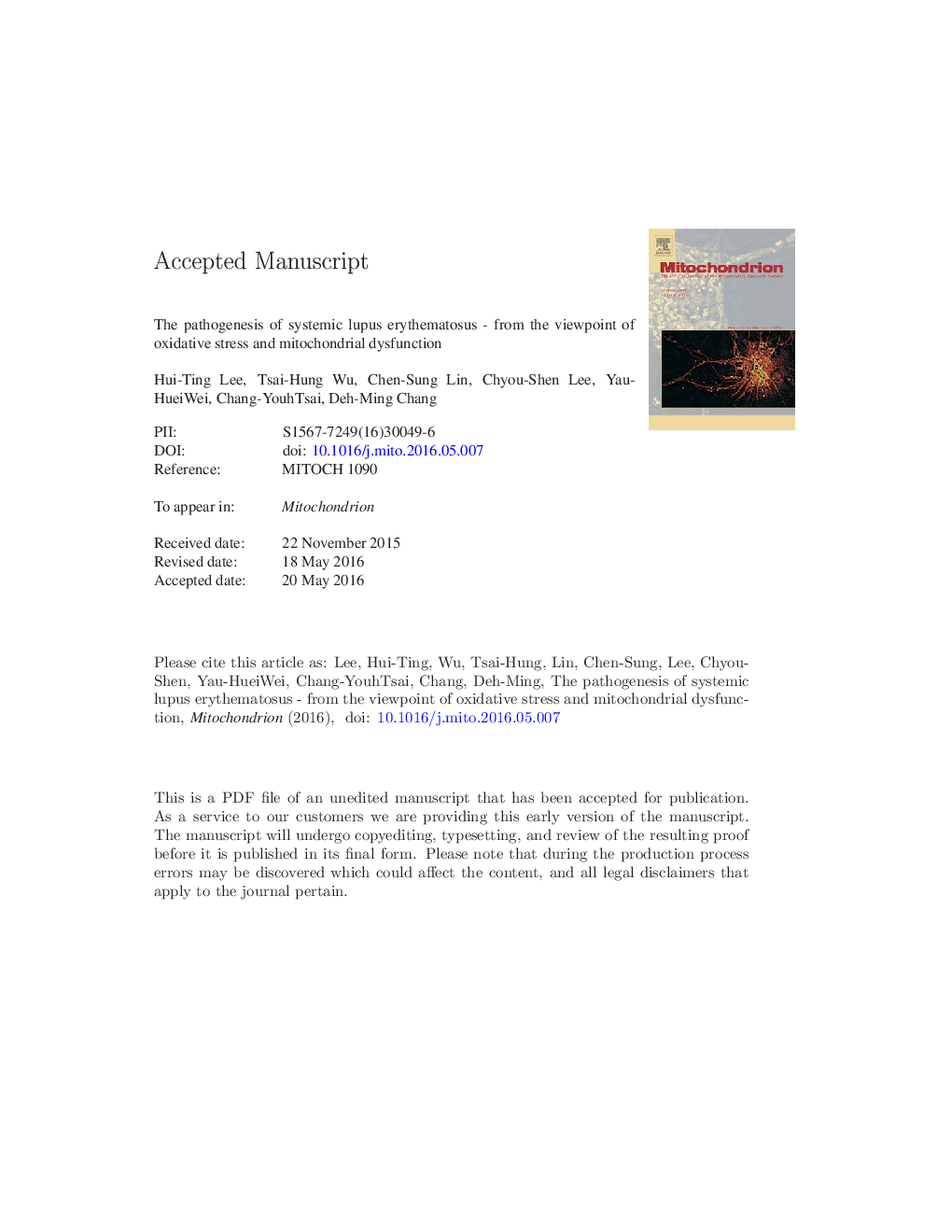| Article ID | Journal | Published Year | Pages | File Type |
|---|---|---|---|---|
| 8398940 | Mitochondrion | 2016 | 39 Pages |
Abstract
SLE is characterized by an increased production of detrimental autoantigens, exaggerated effects of pro-inflammatory cytokines, dysregulated functioning of immunocompetent cells including lymphocytes and leukocytes, and devastating tissue and organ damage. All of these derangements can be potentiated or attenuated by the abnormal energy expenditure and overproduction of reactive oxygen species (ROS). Mitochondrial heteroplasmy or dysfunction has been recognized to play a role in these abnormalities. Abnormal redox reaction, decreased functioning of biogenesis-related enzymes, increased NETosis, harmful cytokine effects, and aberrant lymphocyte behavior have been shown to be associated with the pathological state of mitochondria. There is accumulating data which support the importance of abnormal oxygen metabolism and mitochondrial disorders in the immunopathogenesis of SLE. Further laboratory as well as clinical data are required to expand our understanding of SLE pathogenesis.
Keywords
Related Topics
Life Sciences
Biochemistry, Genetics and Molecular Biology
Biophysics
Authors
Hui-Ting Lee, Tsai-Hung Wu, Chen-Sung Lin, Chyou-Shen Lee, Yau-Huei Wei, Chang-Youh Tsai, Deh-Ming Chang,
